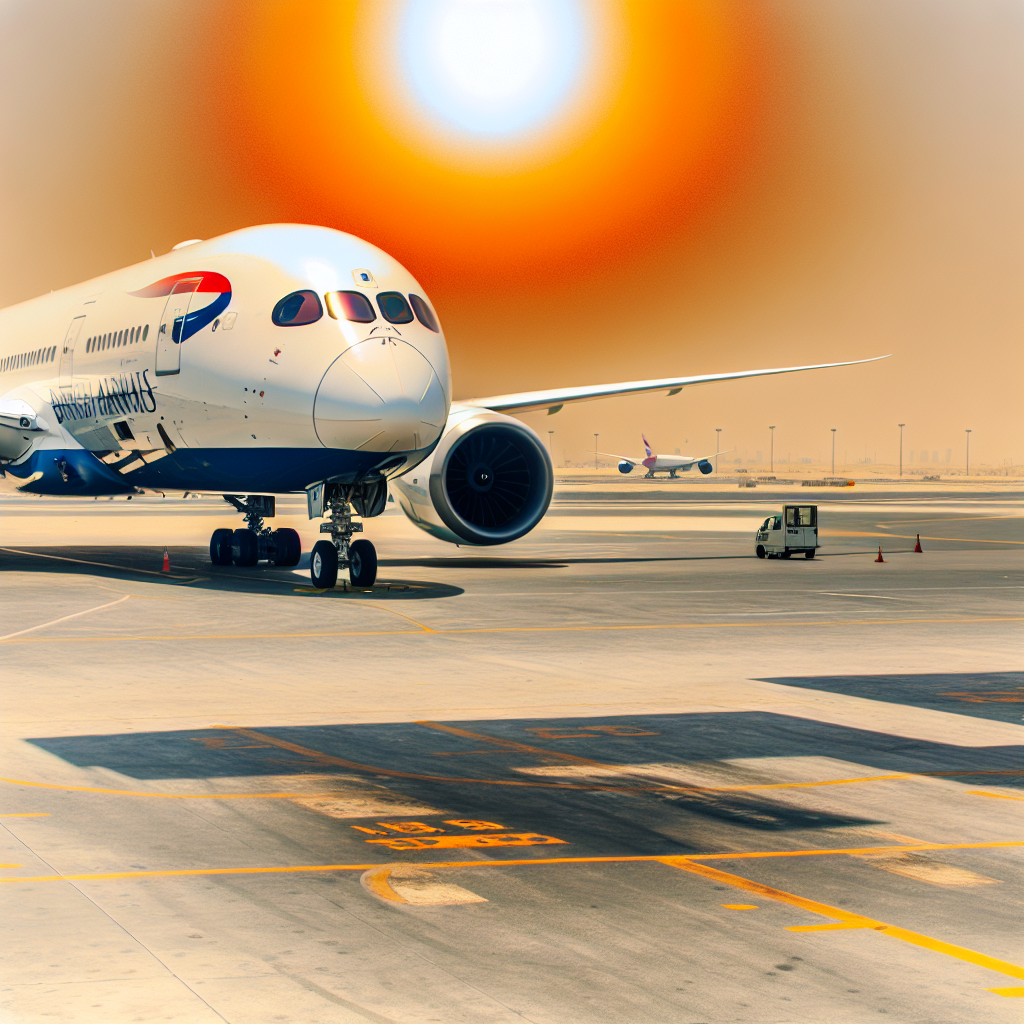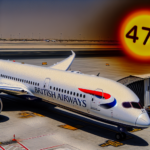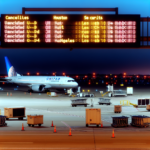DUBAI- British Airways (BA) passengers faced severe heat onboard a Boeing 787-9 Dreamliner after experiencing a malfunction that left them without air conditioning (AC) during a two-hour delay on the tarmac.
This incident took place on May 24, when Flight BA104 was scheduled to travel from Dubai International Airport (DXB) to London Heathrow (LHR) and suffered an Auxiliary Power Unit (APU) failure that hindered cabin cooling before departure, as reported by PYOK.
British Airways Flight BA104 was set to embark on a seven-hour journey to London. After timely boarding of the Boeing 787-9 Dreamliner, passengers found themselves in an increasingly warm cabin due to the malfunctioning APU.
The APU is critical for supplying power and air conditioning while the aircraft is at a standstill.
Usually, ground equipment can take over if the APU fails, and once the engines are running, the cooling systems can operate again. However, complications arose when the aircraft started to taxi and was halted due to a cockpit warning light.
With the gate occupied, the aircraft was redirected to a remote cargo area, resulting in passengers being stuck in uncomfortable conditions.
Passenger Experiences
<ppassenger jacqueline="" stringer="" reported="" that="" the="" internal="" cabin="" temperature="" hit="" an="" astonishing="" 47°C (116.6°F), leading to children being dressed only in diapers in a desperate effort to cool down, with only a single cup of water distributed to each passenger.
Flight attendants faced difficulties in providing additional service due to the extreme heat.
Stringer, who has high blood pressure, described the situation as physically and emotionally taxing. She sought advice on a British Airways complaints forum, where responses ranged from sympathetic to dismissive.
In response to the situation, British Airways acknowledged the technical failure in a statement. They confirmed that the aircraft returned to the gate for maintenance before finally departing. While the airline expressed gratitude for customer patience, they did not convey any offer of compensation or a formal apology.
Though APU failures and ground delays are not unusual in aviation, prolonged exposure to extreme heat poses significant health risks. Experts suggest that safety protocols should prioritize passenger and crew well-being, even if it leads to operational challenges.
Challenges in Operations
Reboarding passengers post-ground delay is a complex logistical issue that airlines generally prefer to avoid.
However, when temperatures surpass safe limits, the argument for temporary evacuation gains strength.
Cabin temperatures exceeding 40°C can lead to dehydration and heat-related illnesses, posing serious health risks, particularly for children, the elderly, and individuals with pre-existing health conditions.
Stay connected with us for further updates. Follow us on social media for the latest news.
Join our Telegram Group for the latest aviation updates. Additionally, don’t forget to follow us on Google News.

Based on an article from aviationa2z.com: https://aviationa2z.com/index.php/2025/05/28/british-airways-passengers-stuck-without-ac-at-dubai/?utm_source=rss&utm_medium=rss&utm_campaign=british-airways-passengers-stuck-without-ac-at-dubai



